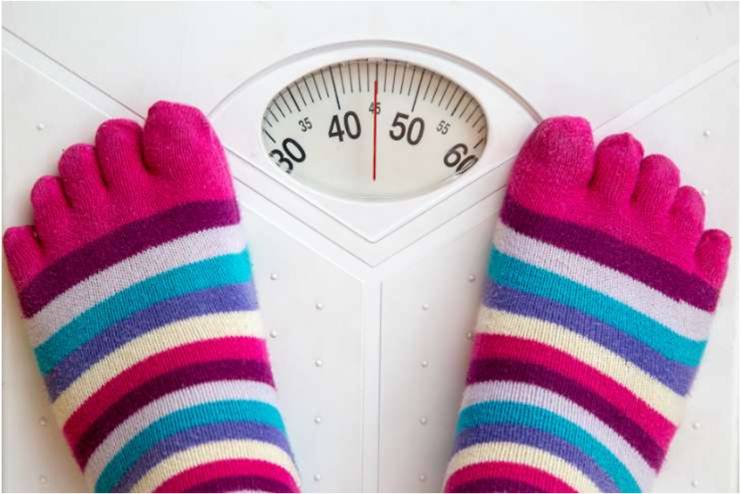Affiliate Disclaimer
Some links in this article are affiliate links. We may earn a small commission if you make a purchase through these links, at no extra cost to you. We only recommend products we find useful to our readersHave you ever felt like you’re following all the rules yet still gaining weight? Insulin resistance, rather than your diet or exercise regimen, may be the source of the issue. Of the approximately 50 hormones circulating in the body, insulin is essential for controlling the biological processes that maintain your health. Pancreas produces insulin, which our body needs to regulate blood sugar. When the hormone is out of balance, you may gain weight, develop prediabetes, and, if the pattern persists, possibly develop type 2 diabetes. A recent study found that of young adults in America without diabetes, 4 out of 10 had insulin resistance, and this condition has a high correlation with adult weight increase.
The Science behind Insulin Resistance and Weight Gain

Insulin plays a very vital role in regulating blood sugar; it acts as a key that allows cells to absorb glucose, which they use for energy. However, for insulin-resistant individuals, the key no longer fits the lock. Because the cells refuse to split, glucose becomes stuck in the circulation. So, even if you’re eating a nutritious diet, the body stores this extra sugar as fat, which causes weight gain.
The pancreas produces elevated levels of insulin, which characterizes insulin resistance. It indicates that the body is ready to store fat. Insulin’s effect on appetite, however, can also increase food intake. Because of these impacts, insulin resistance can make it more challenging to maintain healthy weight.
“If you believe you are at risk or have insulin resistance, discuss with your physician how to manage the illness, including diet,” advises Michael W. Lee, MD, an endocrinologist at the Scripps Clinic Center for Weight Management. Dr. Lee continues, “Your attempts to lose weight may not have anything to do with willpower.” “It might be caused by how your body responds to insulin or doesn’t respond to it.”
How Insulin Resistance Alters Fat Storage and Cravings

Insulin resistance upsets your hormonal system, not just your blood sugar levels. The body’s stress hormone, cortisol, is one crucial hormone affected. Insulin resistance is frequently accompanied by elevated cortisol levels, exacerbating belly fat and complicating weight loss.
Leptin, known as the “satiety hormone,” also falls victim to this imbalance. The primary job of leptin is to assist in maintaining a long-term equilibrium between your body’s energy expenditure and food intake. When your body doesn’t require energy, leptin helps control energy balance and suppress appetite. It prevents your body from going into hunger mode.
Leptin modifies your food intake instead of influencing your appetite and food consumption between meals. It regulates your energy expenditure over an extended period, which can help you maintain your ideal weight. However, insulin resistance tampers with its signals, increasing your appetite even after you’ve eaten enough. In addition to increasing fat accumulation, this hormonal mess also causes constant cravings and low energy, which further undermines attempts to manage weight.
Comprehending how insulin resistance interferes with these essential hormones is the secret to ending the cycle of cravings, exhaustion, and uncontrollably stubborn fat accumulation.
How to Manage Weight with Insulin Resistance

The best strategy to increase insulin sensitivity and lower risk of type 2 diabetes is to lose extra weight. Studies suggest that losing weight can even restore insulin resistance. Even though having high insulin levels can make it more difficult to lose weight for the reasons indicated, it is still possible to lose weight even if you have insulin resistance. Here are a few successful tactics:
Eat fiber-rich, low-sugar carbs: If you want to keep your blood sugar and insulin level under control, it is helpful to choose more complex carbs that are high in fiber, such as vegetables and whole grain, rather than refined carbohydrates, such as white bread, white pasta, cookies, and chips.
Intermittent fasting: It is an additional method that helps enhance insulin sensitivity. It allows your body to take longer breaks from eating, promoting fat reduction and better glucose management.
Boost your exercise regimen: Studies have demonstrated that physical activity lowers blood sugar and insulin levels and assists with weight loss. If you are not currently engaging in regular exercise, start with a little quantity of movement. For example, whether you park further away, take the stairs, or walk the dog, these activities add significant movement. Another option is to engage in resistance training; high-intensity interval training (HIIT) is becoming increasingly important. These activities boost your metabolism by increasing the glucose your muscles absorb.
Time nutrients: It is essential to ingest carbohydrates, lipids, and proteins in a smart manner throughout the day, as it helps maintain a healthy blood sugar level and maximizes energy. It is important to eat protein early and to space out carbohydrate consumption in order to avoid insulin spikes.
Consult your physician regarding prescriptions: If you’re making better lifestyle changes but aren’t seeing improvements in your blood sugar levels or losing excess weight, you might be a candidate for medication to support your efforts. Medication that the FDA has approved can aid in reducing weight and enhancing insulin resistance. By speaking with your healthcare practitioner, see whether any of them would be a good fit for you.
Success Stories: Real People Who Defeated Insulin Resistance

True success stories give people hope by demonstrating that losing weight and overcoming insulin resistance is feasible.
Real Life Story Of Amy
Amy struggled with obesity early on. When she was 8, she weighed 200 pounds. Amy struggled with weight as an adult. “I tried every diet and gained all the weight I lost, plus more,” Amy recalled. Most diets I tried entailed eating pre-packaged items, so when I stopped and ate usually, the weight came back.
Amy modified her weight loss strategy two years ago. Amy didn’t understand why she’d struggled with weight since childhood despite reducing weight well. Unanswered inquiries led her to Nutritional Weight & Wellness. Amy saw Cassie at Nutritional Weight & Wellness after a friend recommended her.
“I had several questions answered after my first appointment. I learned about insulin resistance and a balanced diet from Cassie, and the science made sense immediately. Commented Amy. I now feel I was insulin-resistant since childhood, which is why I was overweight at 8.”
Real Life Story Of Dan
Dan Falcone’s type 2 diabetes diagnosis was difficult. His father and sister had diabetes. “It was overwhelming to hear at first, and I didn’t make the necessary changes right away,” he said.
Dan’s weight and A1c were declining after ten years of oral diabetic medication. He was prescribed insulin by his Ohio primary care physician, but he didn’t feel supported to get well.
Through a childhood friend, Dan reconnected with high school acquaintance David Harlan, MD. Internationally renowned diabetes physician and researcher Dr. Harlan co-directs the UMass Chan Diabetes Center of Excellence. Dan lost 60 pounds and lowered his A1c from 11% to 6.7% after seeing Dr. Harlan in Worcester and following their treatment plan. Using oral medicines and a weekly dulaglutide (Trulicity) injection, he stopped taking insulin!
Dan wears a Fitbit and walks 10,000 steps daily as part of his lifestyle transformation. “My weight loss is slow and steady, making it sustainable.” he’s “enjoying the process” and “feeling accomplished.” He walks every day outside on beautiful days and inside the mall on cold or wet days.
Conclusion
You don’t have to let insulin resistance prevent you from reaching your weight objectives. You can take back control by comprehending how it interferes with your metabolism and mastering techniques like carb cycling, intermittent fasting, and mindful eating. Although the path may appear complicated initially, you will get closer to long-term weight control with each step.
References
- https://www.sentara.com/healthwellness/articles/Why-insulin-resistance-can-lead-to-weight-gain-diabetes
- https://www.veri.co/learn/insulin-resistance-and-weight-loss?srsltid=AfmBOoqiGJhgrIQDR3B1rvIJEdnCyKT9E0VNLSDImcC6klRojLALy67g
- https://academic.oup.com/jcem/article/107/1/e25/6362635?guestAccessKey=5b7c3daf-2030-47db-92ef-6e6388e691ba&login=false
- https://www.ncbi.nlm.nih.gov/pmc/articles/PMC6832997/
- https://www.scripps.org/physicians/4584-michael-lee
- https://www.scripps.org/services/metabolic-conditions
- https://www.scripps.org/services/weight-management
- https://www.ncbi.nlm.nih.gov/pmc/articles/PMC6832997/
- https://www.ncbi.nlm.nih.gov/pmc/articles/PMC4038351/
- https://www.unichem.co.nz/post/weight-gain-insulin-resistance-understanding-the-connection
- https://www.ncbi.nlm.nih.gov/pmc/articles/PMC1490021/
- https://www.donovitz.com/how-insulin-resistance-contributes-to-weight-gain/
- https://atkins-hcp.com/updates-from-atkins-hcp/how-insulin-blocks-fat-burning-1/
- https://www.ncbi.nlm.nih.gov/pmc/articles/PMC5373497/
- https://my.clevelandclinic.org/health/articles/22446-leptin
- https://www.ncbi.nlm.nih.gov/pmc/articles/PMC3619125/
- https://www.ncbi.nlm.nih.gov/pmc/articles/PMC2770158/
- https://www.sciencedirect.com/science/article/pii/S0891584914002329
- https://my.clevelandclinic.org/health/diseases/22206-insulin-resistance
- https://www.weightandwellness.com/resources/client-success-stories/amy-y-story
- https://www.weightandwellness.com/meet-our-nutritionists/cassie-weness-ld-rd
- https://www.umassmed.edu/dcoe/diabetes-care/success-stories/2024/02/dan-falcone/
- https://www.umassmed.edu/harlanlab/diabetes/
- https://www.scripps.org/news_items/4621-can-insulin-resistance-cause-weight-gain
In this Article

















